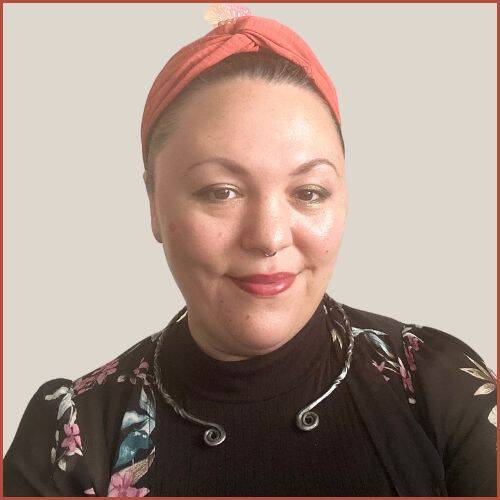What is a shiva?
Shiva means ‘seven’ in Hebrew and it refers to the first week of initial mourning after a loved one dies.
The purpose of the shiva is to comfort the bereaved individual or family. The Sages teach us that a mourner is at their most vulnerable the first week after a loss, so it’s our job to ensure they’re not alone.
If you’re going to a shiva (sometimes also called a shiva minyan), it can feel daunting no matter who you are. Many of us don’t feel comfortable— even Jews who come from relatively religious backgrounds who know what to expect.
Participating in a shiva can be very moving. It is one of the most powerful rituals in Jewish tradition, when approached correctly. So, here are some basics.
When you get there:
Resist the urge to chat. For some, talking is a coping mechanism to deal with discomfort. But remember that you’re there to support the mourner in their time of need, and saying things like, “How are you?” (no matter how well intentioned) can be painful for the person you’re trying to support.
In fact, the Sages recognized what a loaded question that is for a mourner, and Jewish law traditionally forbids it for the first full month after a loss.
Instead, when you arrive, just say, “I’m so sorry for your loss,” or “May (the deceased’s name) memory be for a blessing.”
If you’re up for it, you can say the phrase:
הַמָּקוֹם יְנַחֵם אֶתְכֶם בְּתוֹךְ שְׁאַר אֲבֵלֵי צִיּוֹן וִירוּשָׁלַיִם.
Ha Makom y’naḥem et-khem b’tokh she’ar aveilei tziyon virushalayim.
May the Divine comfort you, along with all the other mourners of Zion and Jerusalem.
While I normally encourage people to practice Hebrew, this phrase is a mouthful — especially if you’re nervous. It is more than okay to use English. Don’t feel bad if that’s more comfortable.
Hugs are essential, but, of course, that depends on how well you know the mourner and your own comfort with this gesture. You can always ask the mourner, “would you like a hug,” which is a great policy in general.
What to do:
People typically sit around the mourners in a physical gesture of support. Most often the shiva will be held in the family’s private home. In Jewish tradition, we assume mourners don’t want to go out in public, so we go to them.
It’s ok to ask to hear a story about the loved one (though this, too, can depend on your own comfort level). This isn’t a selfish request, even though it might feel a bit voyeuristic. There are plenty of studies that suggest it’s an important part of the grief and healing process to share memories of a loved one. In some cases, at the end of the service portion of the shiva, the mourner might be asked explicitly to share a story for everyone to hear.
What to expect:
People will cry. You might cry. It’s ok. Despite what societal programming tells us, crying is not a sign of weakness. It’s nothing to be ashamed of and it is extremely healthy.
As already noted, a shiva lasts for seven days (with the exception of certain holidays like Yom Kippur that cut it short). During those seven days it’s typical to have particular time slots to visit the family. These usually coincide with morning or evening prayer services because mourners need to say the kaddish, a special prayer for the soul of the deceased.
In liberal Jewish circles, both men and women are counted for the minyan (the quorum of ten for traditional Jewish prayers). Orthodox circles, however, will only count men, so don’t be surprised if that’s the case.
What to bring:
If you want to bring food, find and contact the person coordinating the shiva. Typically, it is a friend of the family or a community member, and they will have a list of who is bringing what. If you’re not sure how to find that information, you can reach out to their family’s synagogue and they can help you.
It is essential to find out if mourners need kosher food and to what level, and if they have allergies.
If this feels inappropriate or too complex then it’s perfectly acceptable to skip the food. Your kind attention and presence with the mourners is what counts the most.
Things to remember:
When you’re sitting with mourners you might encounter silence. Though this can feel awkward and uncomfortable, I encourage you to lean into it. The TorahRefers to the first five books of the Hebrew Bible, the Tanakh, also called the Five Books of Moses, Pentateuch or the Hebrew equivalent, Humash. This is also called the Written Torah. The term may also refer to teachings that expound on Jewish tradition. Read more tells us that Aaron was silent when his two sons, Nadav and Avihu, died (Leviticus 10:3); a beautiful example of how grief sometimes goes beyond our ability to express with words.
Remember that you’re there in a supportive role. We’re often trained to chat in order to lighten a mood, but in the case of shiva (a dedicated mourning space) chatting shifts the focus from the mourners and their needs. What they need is a safe, loving space in which to confront their loss and what it means for them going forward. Chatting doesn’t allow for that.
A good rule of thumb is asking, ‘how can I best support the mourners in this moment?’ On some occasions, that might be letting the mourners talk about other things. It will be up to you to be sensitive and use your best judgement.
Many of us were not given tools to handle the complexity of moving through grief and loss. This is one of the many, many gifts of Jewish ritual: it gives us a roadmap to navigate the enormous transition of death in a healthy way. It’s a hallmark of Judaism that we have a ritual for everything, especially when it comes to death and mourning. To be candid, I think Judaism gives us some of the healthiest mourning rituals of any religion.
The practice of shiva gives us a container in which to begin processing the plethora of emotions a death can evoke. Jewish tradition views death as natural, simply a part of life as evidenced in the book of Ecclesiastes: “there is a time for everything, and a season for ever desire under heaven. A time to be born and a time to die.” (Ecclesiastes 3:1-2).
When we come together to talk, cry, laugh, and support each other in moments of loss we celebrate the intangible gifts our loved ones gave us. There is something about the irreversible nature of death that allows us to see these gifts in ways we couldn’t have imagined before.
This is the genius of the Jewish spiritual tools, of which shiva is just one: it helps us turn moments of incredible challenge into growth, deep, meaningful connection, and, ultimately — healing.
Author
-

Malka Michél was born and raised in Honolulu, Hawaii. She is the proud daughter of an Ashkenazi father and Sephardic mother with Converso roots. She was a fellow in the first cohort of the Exploring Judaism's Writer's Fellowship. Malka regards her upbringing on the western extreme of the American Jewish Diaspora as having an enormous influence on her outlook as a Jew and the deep spirituality she cultivated as a child. As an intuitive and highly creative and soul, it was natural for Malka to pursue degrees in Western Classical music and performance. Seeking to reclaim a critical part of her Jewish identity, Malka taught herself Hebrew and then completed three years of cantorial school at Hebrew Union College in Jerusalem and New York. During that time, Malka fell in love with Hazzanut but longed to know more about the rich, beautiful and often challenging world of Jewish text. So, in 2020 Malka began her journey at the Ziegler School for Rabbinic Studies in Los Angeles. Malka sees her circuitous journey to the rabbinate as essential in shaping her as a person and a rabbi.
View all posts




